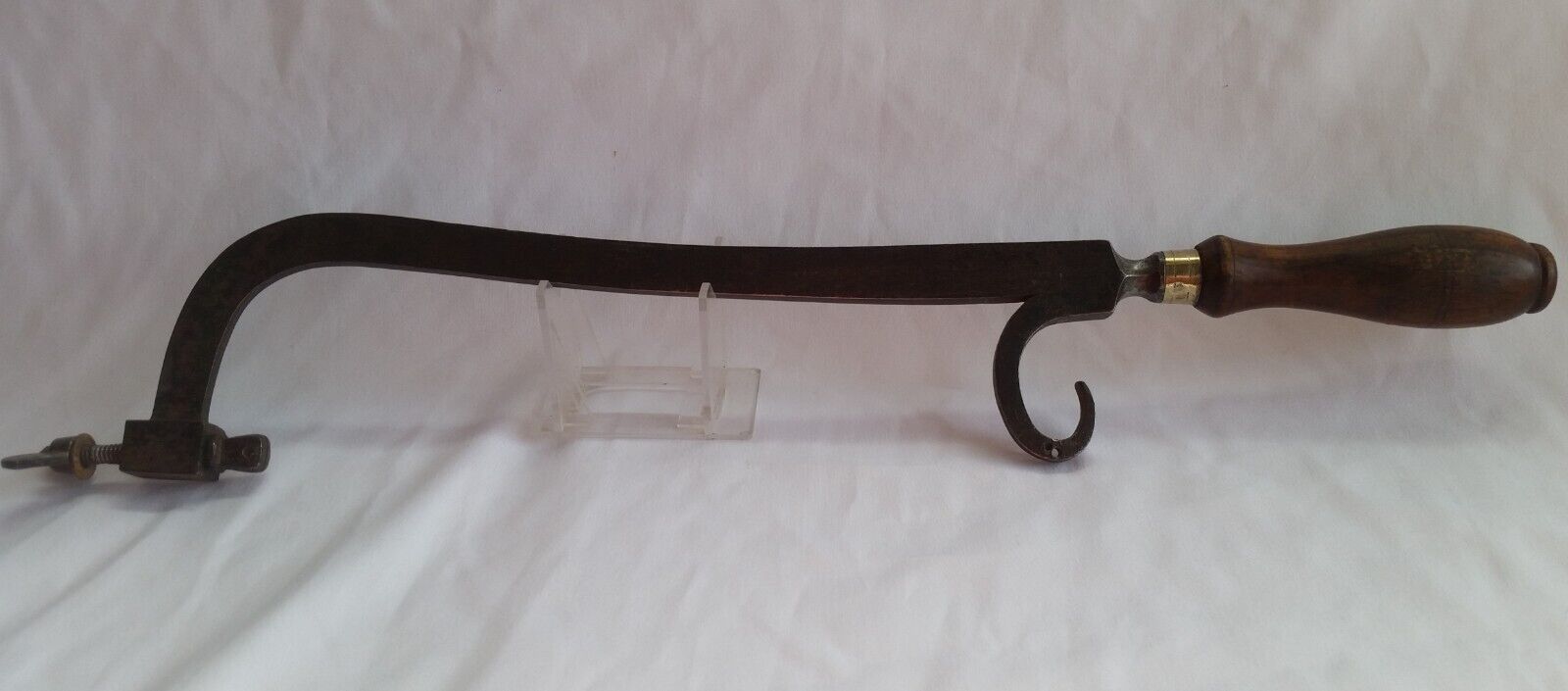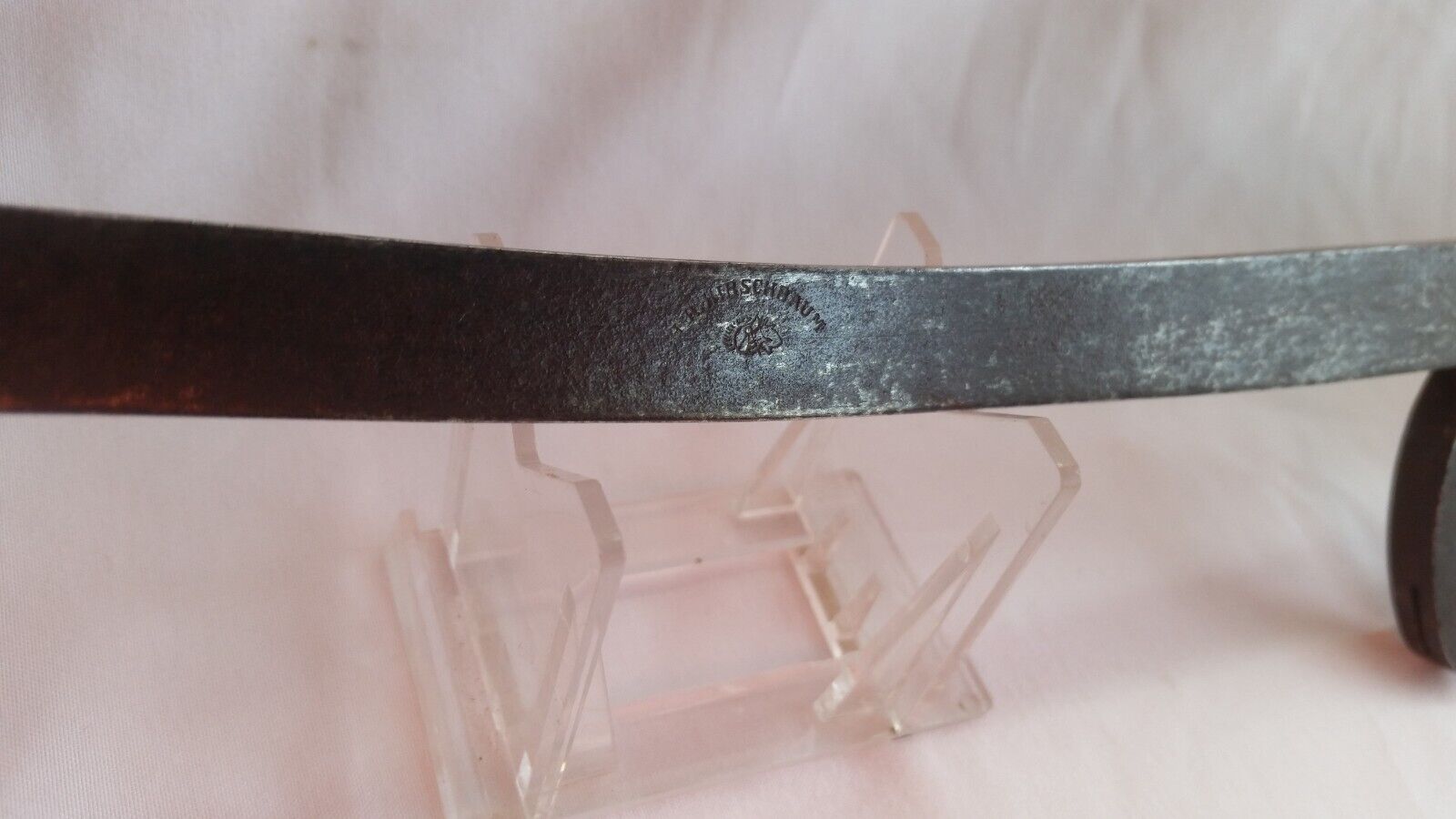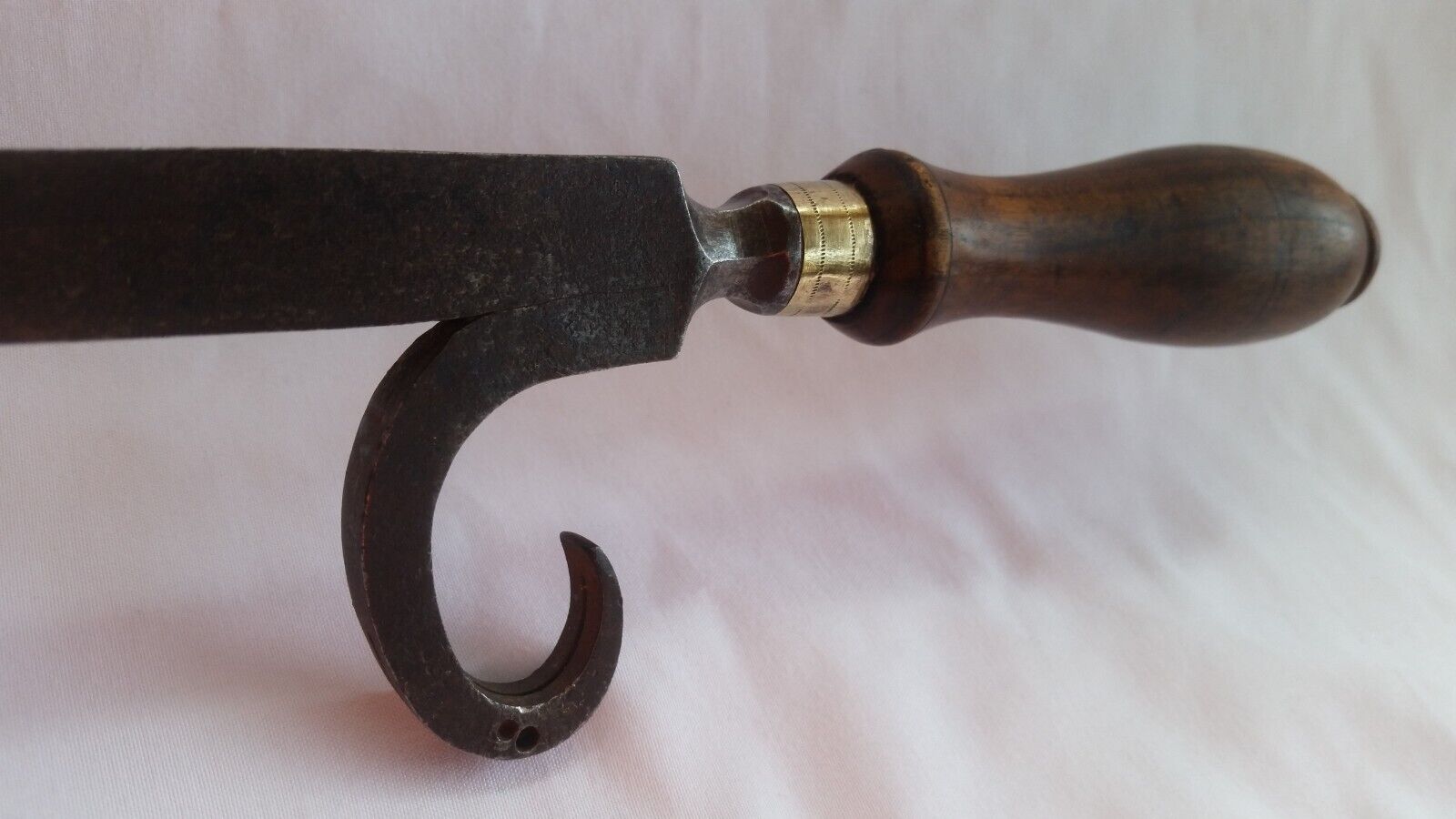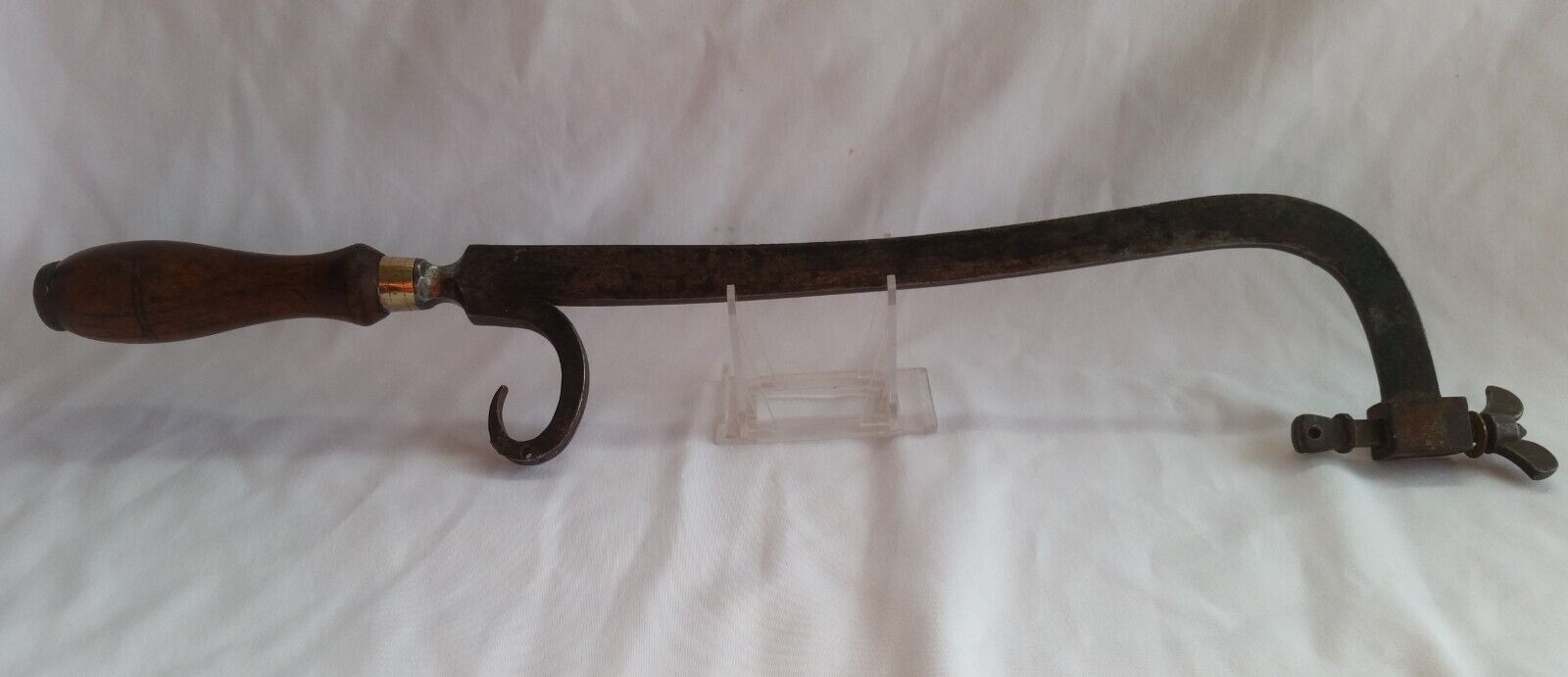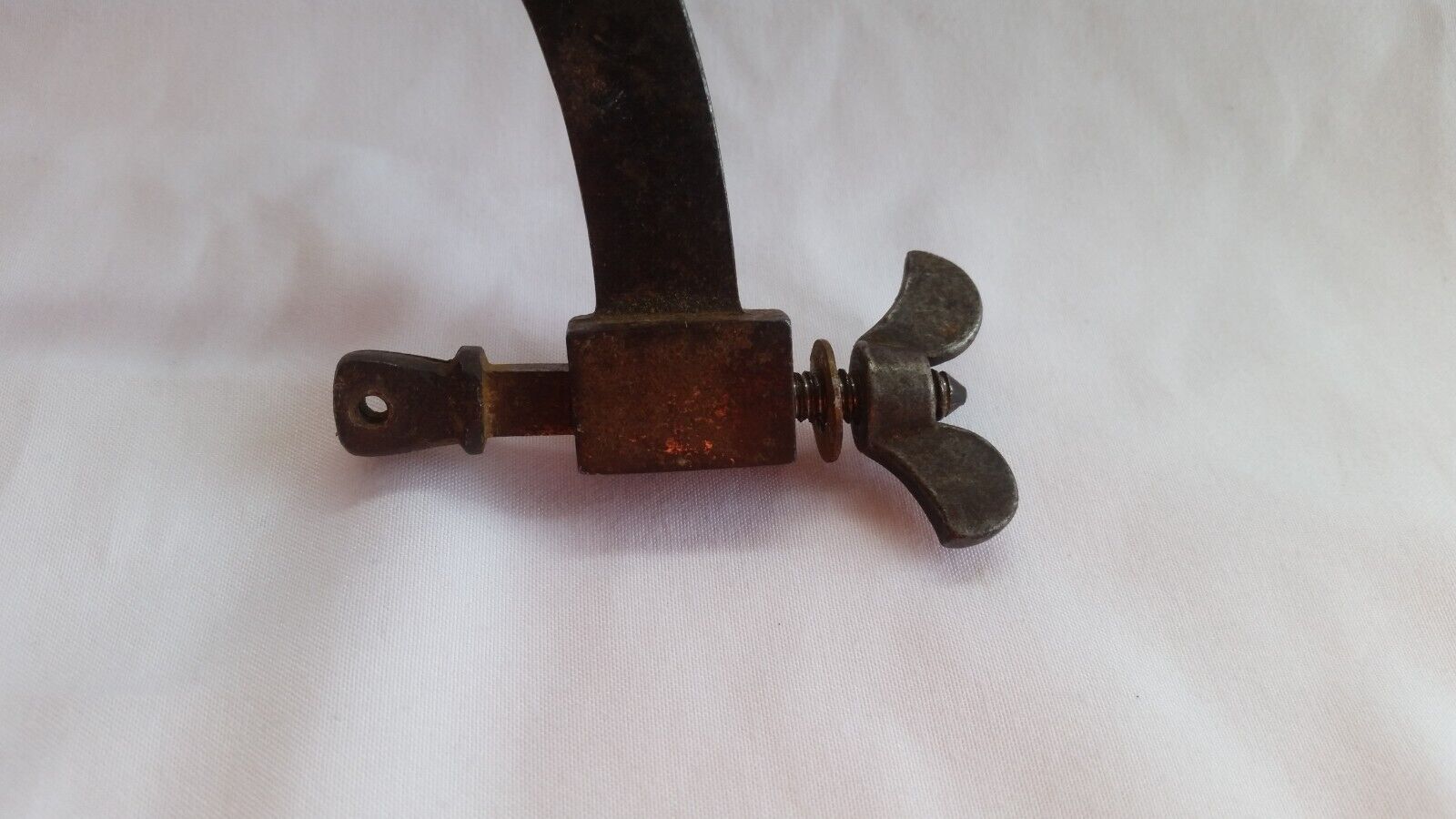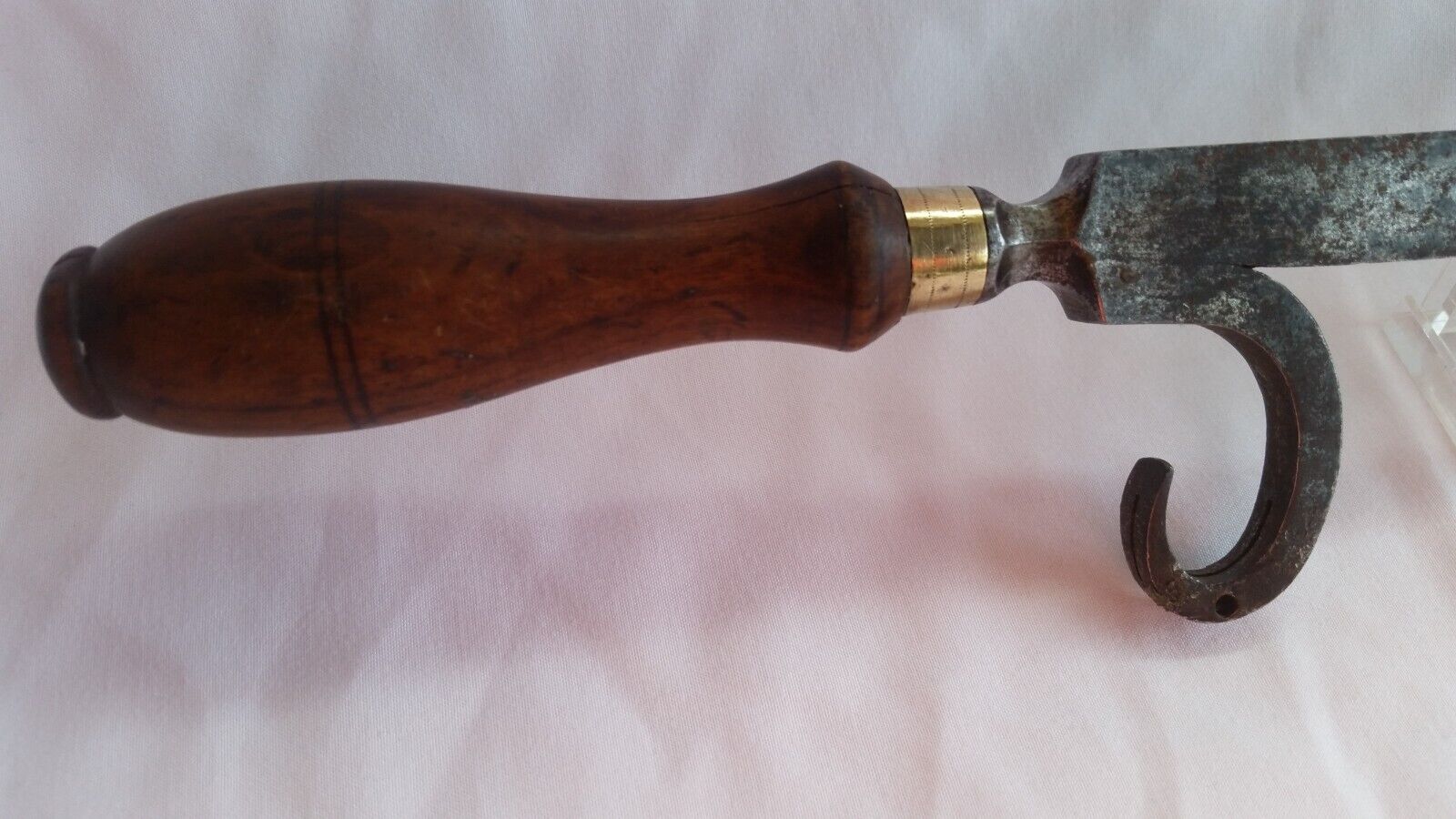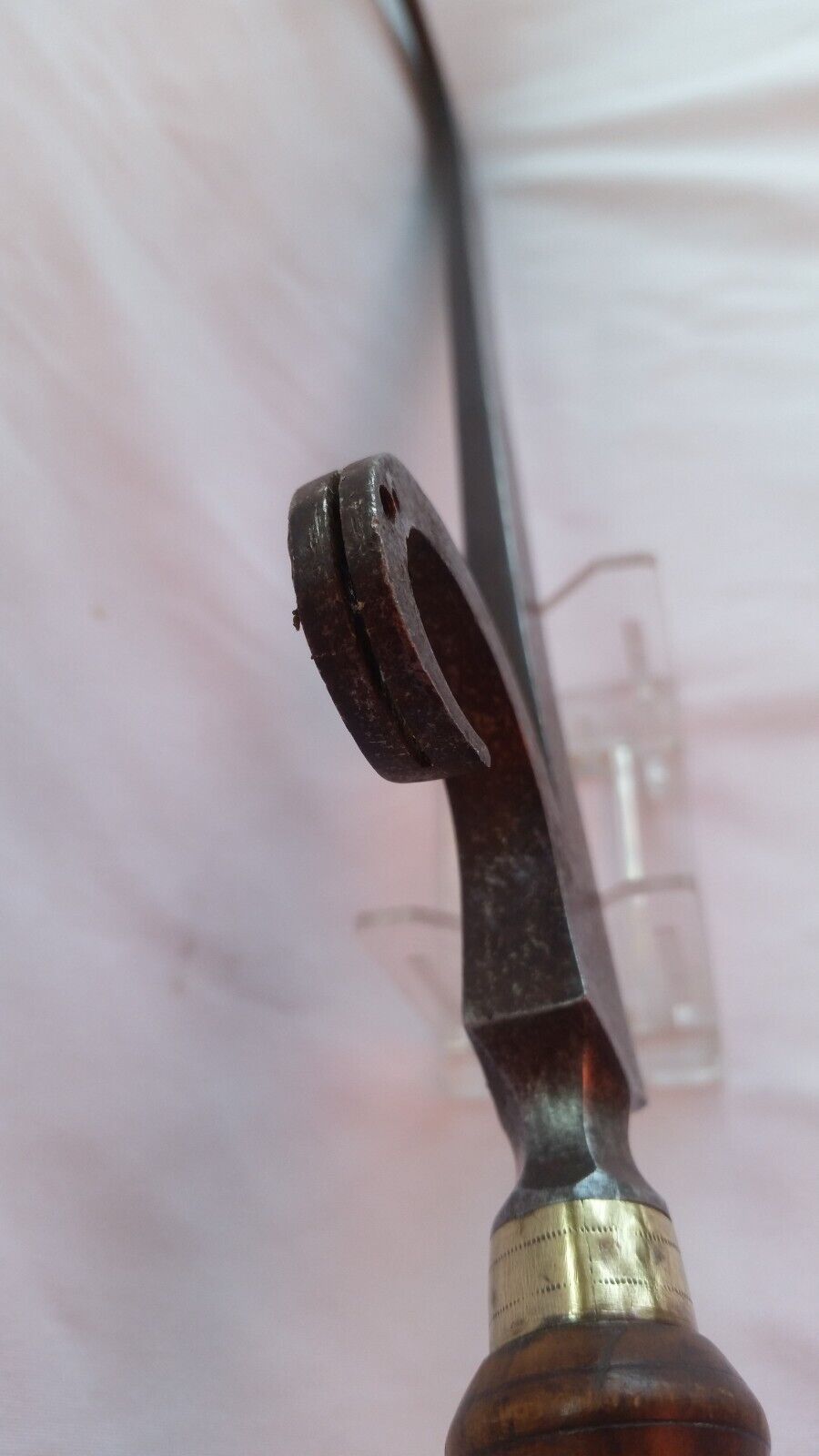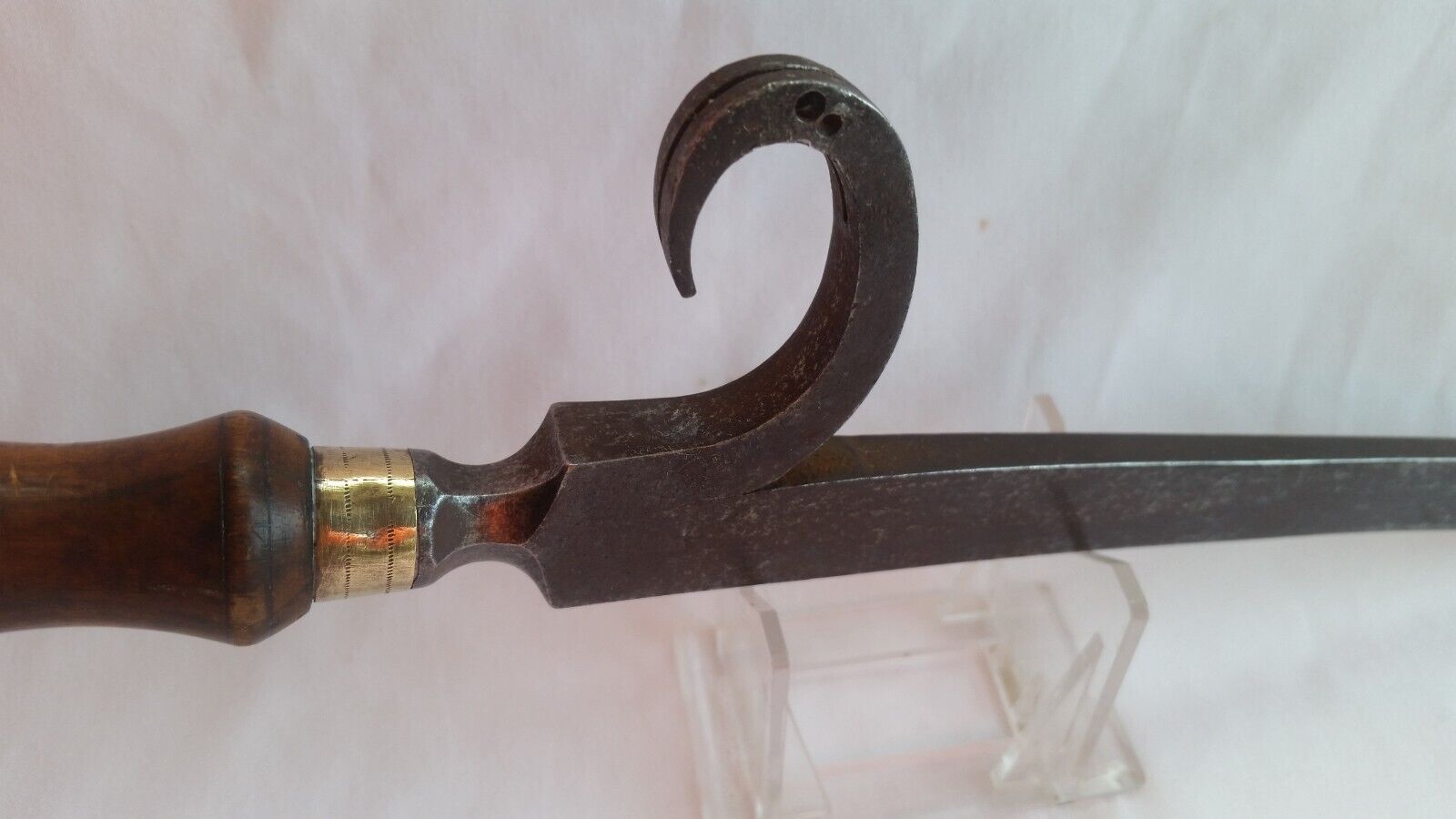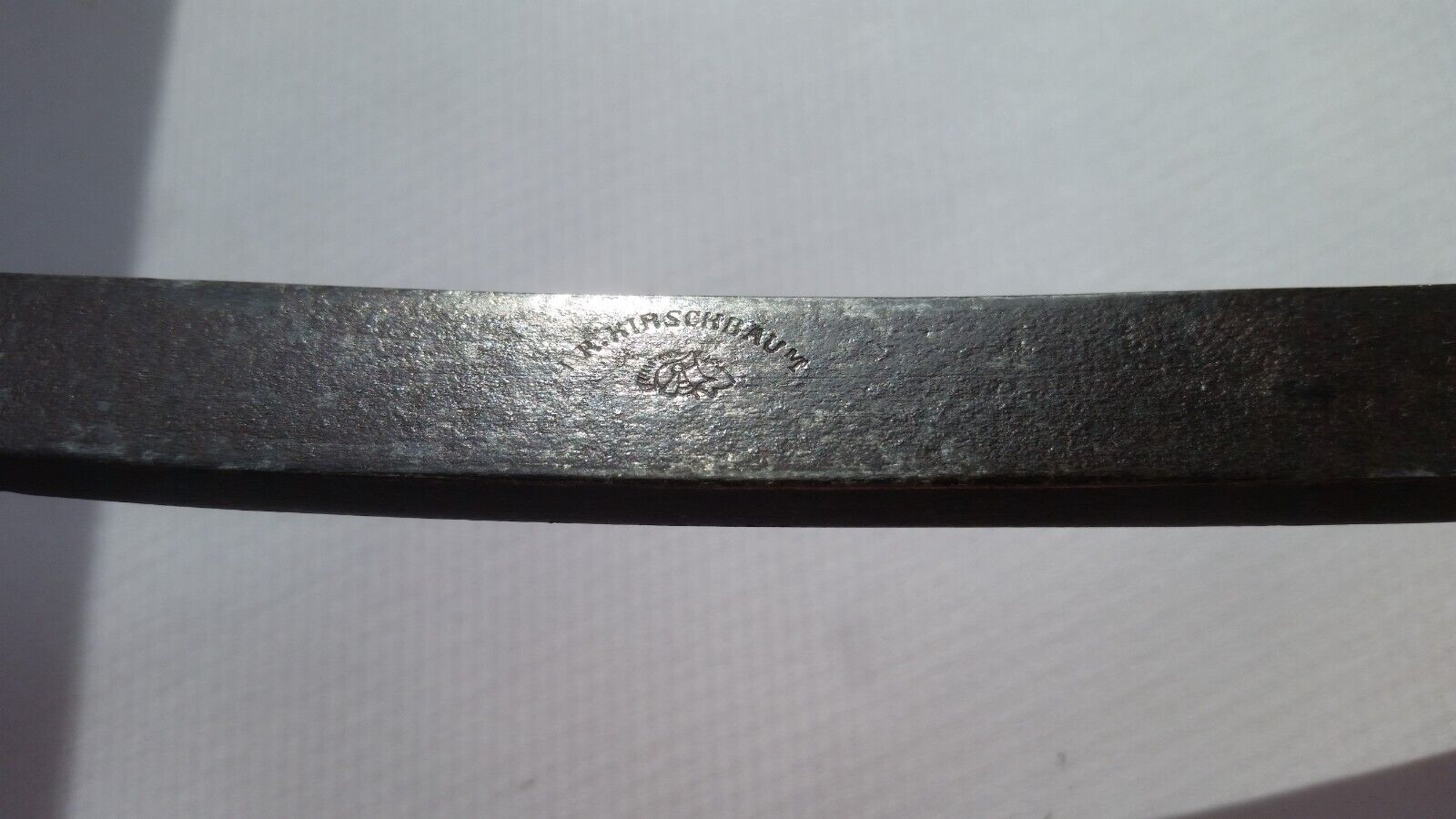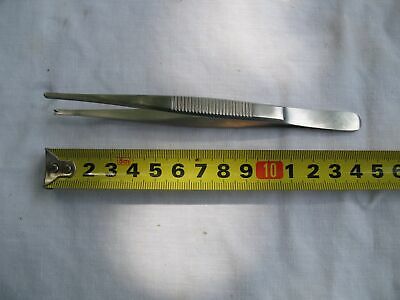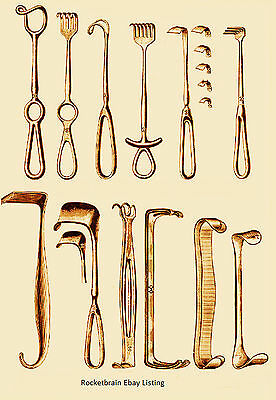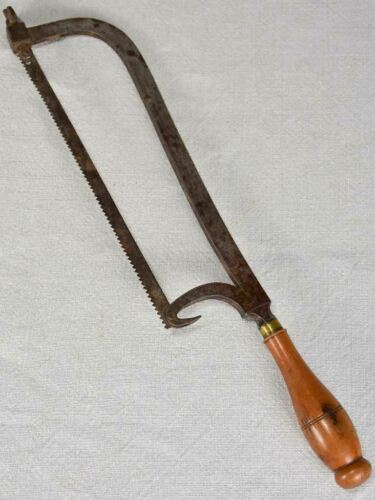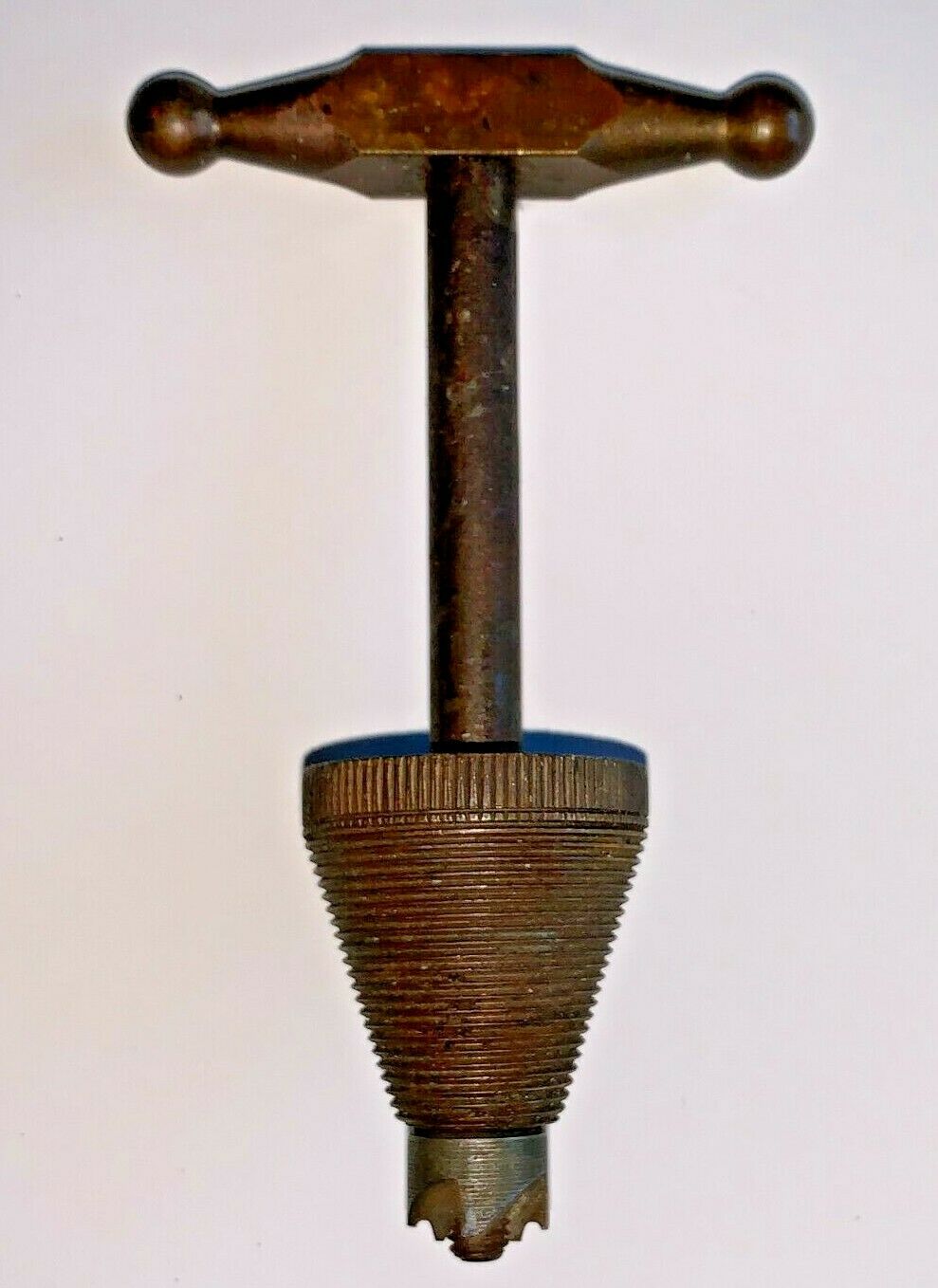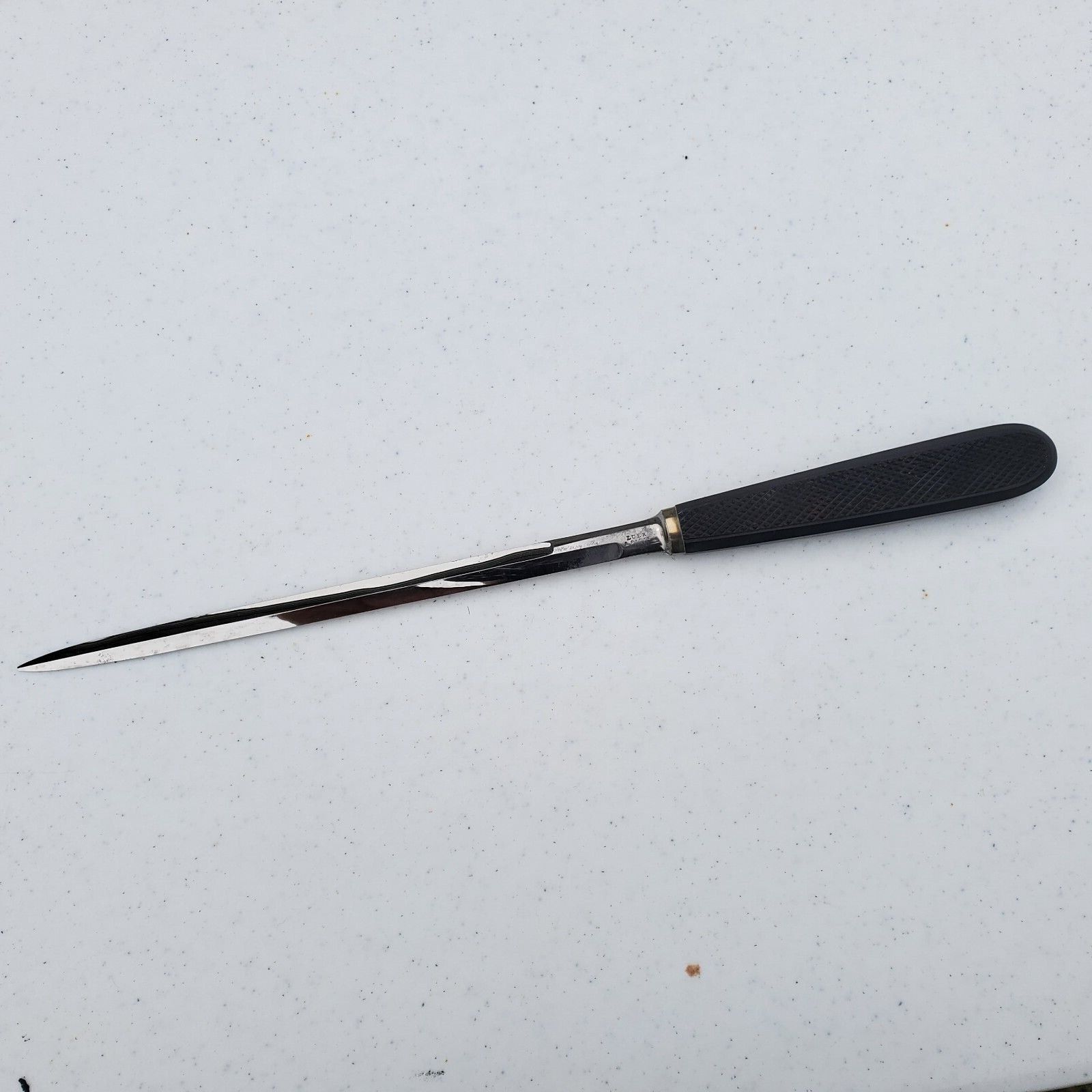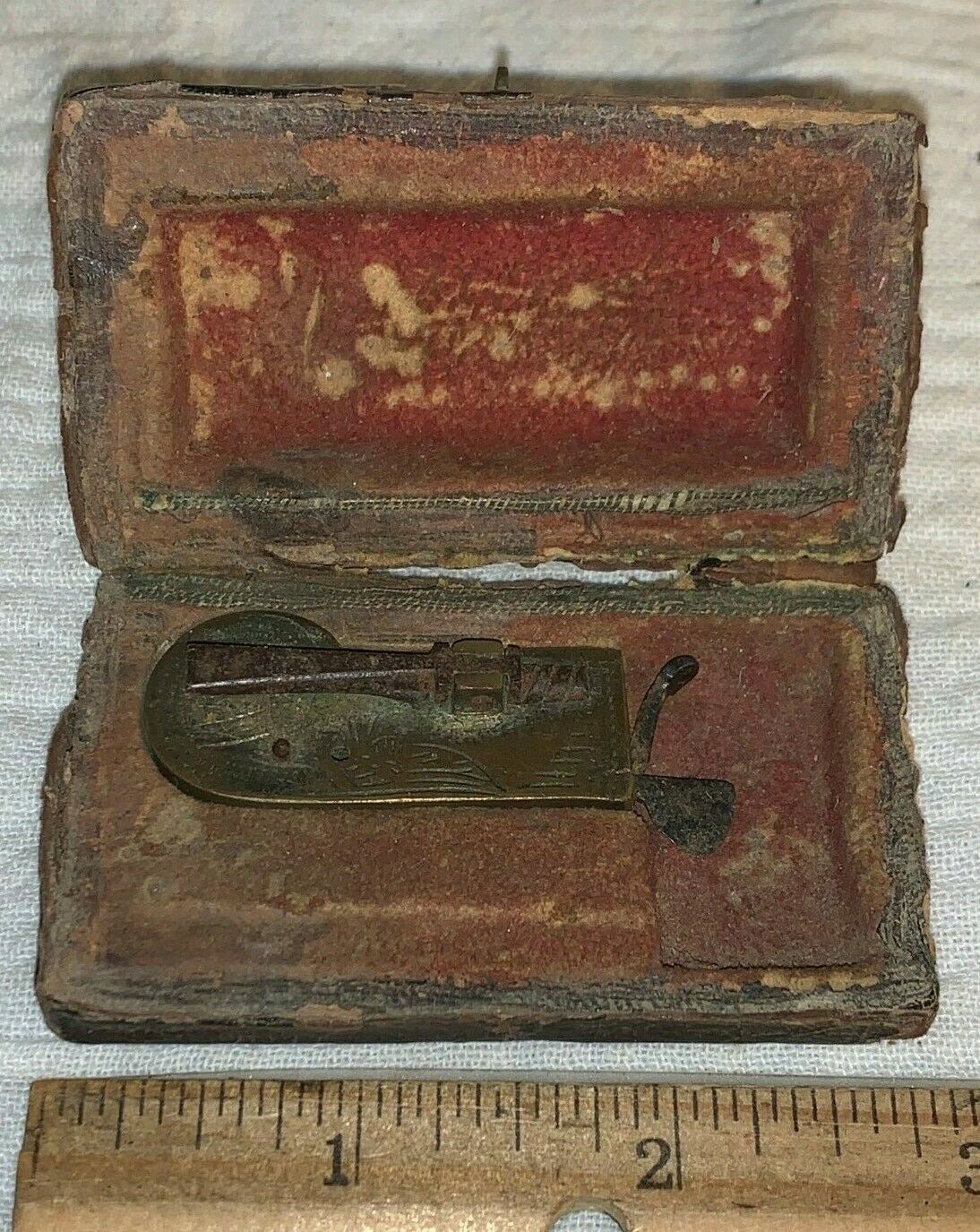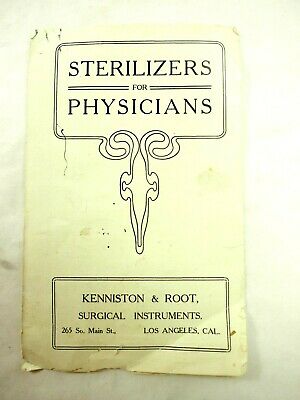-40%
Antique Rare German Kirschbaum Surgical Amputation Bone Saw Circa 1854
$ 224.4
- Description
- Size Guide
Description
Antique Rare German Kirschbaum Surgical Amputation Bone Saw Circa 1854This Company is known for some of the finest Edge Weapons in the World through a Process of roll forged steel and Produced Swords, Blades, edge weapons.
What is Extremally rare is to find surgical tools produced by Kirschbaum as they don't come up often. Blades, Swords edge weapons more often.
I believe this may be pre-war after looking at some data. But I'm no expert so please conduct your own research.
Total length of saw is approximately 16" long
Handle and saw are in VG+ to Excellent Condition for its age. (No Blade)
A really nice piece that should be in a museum or serious collection.
Feel free to ask any questions.
Good Luck and thank you for looking!
Gizmo's Collectibles!
Please see some info below that I gathered.
1854
During this era, another family was also acquired growing influence in Solingen - the Kirschbaum´s. They had dedicated themselves to the marketing of Solingen products, focusing on blades for swords and knives. They registered the second trademark of WKC - the knights-helmet.
1883
The two companies Weyersberg and Kirschbaum joined forces in 1883 and founded Weyersberg, Kirschbaum und Cie. (W.K.C.). Both trademarks were joined and formed the trademark that is still in use today.
WKC developed quickly to be the strongest company in Solingen, with more than 1200 workers and an excellent reputation for various quality products made of steel – from cutlery to bicycles to swords. Even parts for the automobile industry were later produced at the company. Even this early, WKC exported worldwide, from Argentina in South America to Japan. It is not a coincidence, that the first 2 telephone numbers in Solingen, No. 1 and No. 2 were the connections to WKC. So when the German Ministry of Defense called – they would say to the operator: „Solingen 1“ and reach WKC´s office.
Using the strengths of the company, WKC developed into the world market leader for ceremonial swords, edged weapons and military bajonetts. In the late 19th century they produced more than 100000 blades annually and also delivered to other sword producers, e.g. Wilkinson Sword in England, which was formed with the help of Mr. Kirschbaum, the then proprietor of WKC. Many edged weapons of this era are currently found in museums worldwide. Look out for the helmet and the knights head on the blade ricasso when you visit a museum. Possibly, your grand-father´s sword is a WKC.
